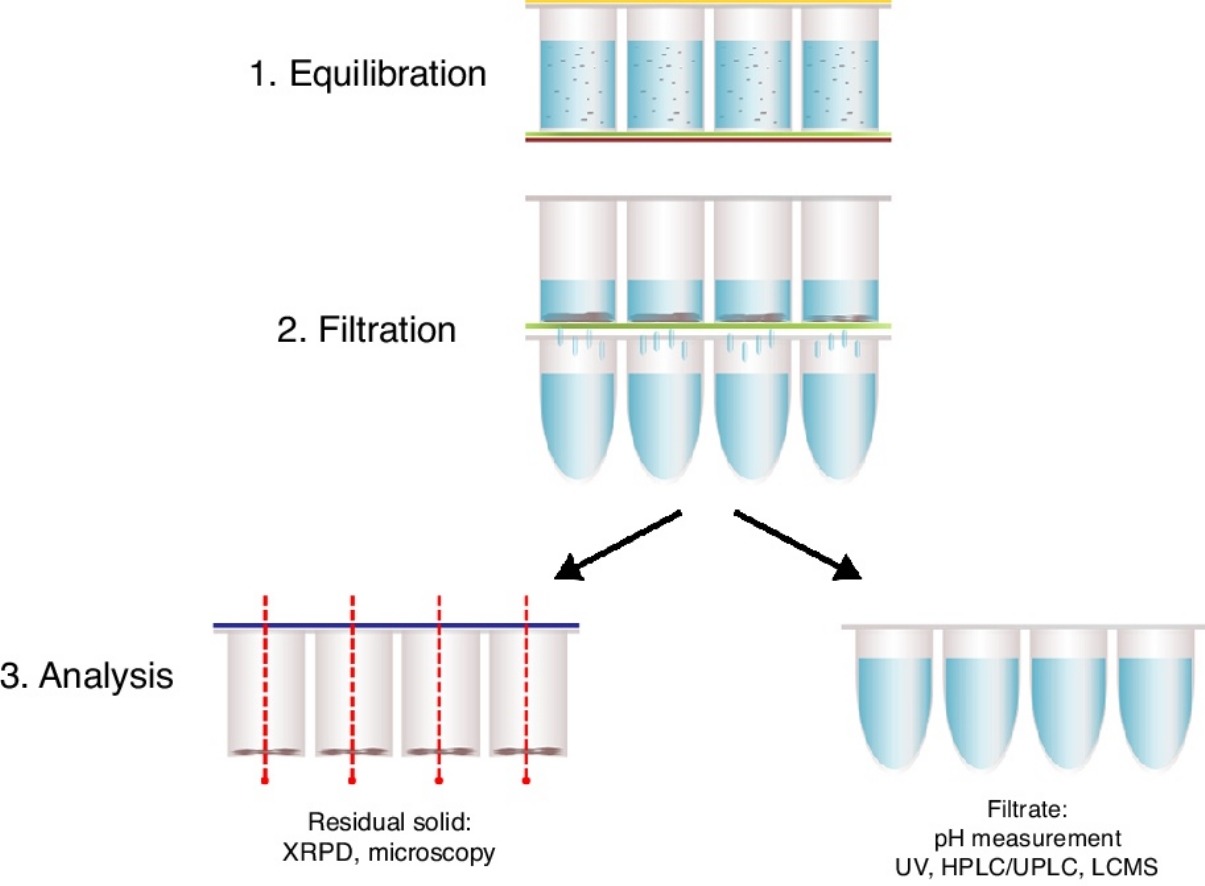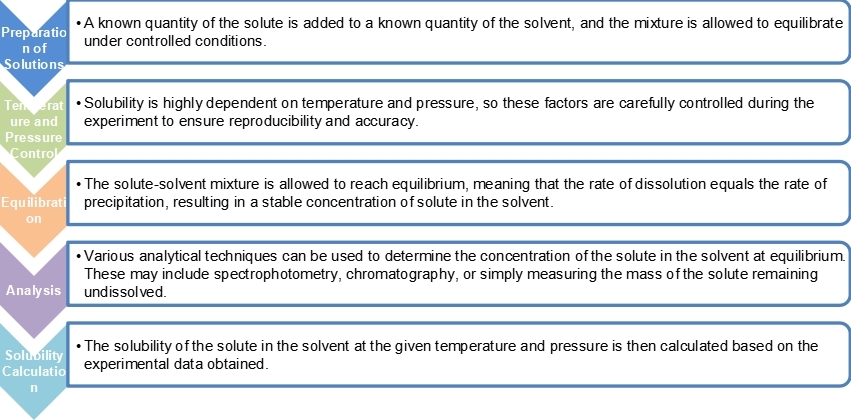Thermodynamic Solubility Testing Service
Why Do Thermodynamic Solubility Testing
Thermodynamic solubility testing is conducted to understand the solubility behavior of a compound under various conditions, primarily to assess its potential for formulation development, drug delivery, and pharmacokinetic properties.
This testing is a fundamental aspect of pharmaceutical development, providing critical data for formulation design, bioavailability prediction, dissolution testing, crystallization studies, and regulatory compliance. It enables rational decision-making in drug development to optimize drug delivery and enhance therapeutic outcomes.
 Fig.1 Determination of thermodynamic solubility.1
Fig.1 Determination of thermodynamic solubility.1
Our Service
Creative Biolabs offers thermodynamic solubility testing services tailored to your specific needs. The following is a detailed introduction to our thermodynamic solubility testing service and the corresponding controls:
-
Thermodynamic Solubility Testing Process
 Fig.2 Thermodynamic solubility testing process.
Fig.2 Thermodynamic solubility testing process.
-
Controls
In thermodynamic solubility determination, multiple controls are often used to ensure the accuracy, reproducibility, and reliability of experimental results. These controls help explain the various factors that can affect solubility measurements. Creative Biolabs offers a variety of common controls for thermodynamic solubility testing, including:
-
Blank Control
This control helps to account for any background interference or noise in the assay system. It typically consists of all the components of the assay except the compound being tested for solubility.
-
Positive Control
A positive control contains a known compound with a well-characterized solubility profile under the assay conditions. It serves as a reference point to validate the assay's performance and to confirm that the experimental conditions are suitable for detecting solubility changes.
-
Negative Control
Similar to the positive control, a negative control contains a compound that is known to be insoluble under the assay conditions. It helps to ensure that any observed changes in solubility are not due to experimental artifacts or non-specific effects.
-
Standard Curve
This control involves measuring the solubility of a compound at known concentrations to establish a calibration curve, which can then be used to determine the concentration of the compound in unknown samples.
-
Solvent Control
Solvent control involves measuring the solubility of the solvent alone under the assay conditions. It helps to ensure that the solvent itself does not interfere with the solubility measurements or affect the behavior of the compound being tested.
-
Temperature Control
Temperature controls are essential to maintain a constant and accurately controlled temperature throughout the assay.
-
Time Control
Since solubility can be time-dependent, especially for kinetic solubility assays, time controls are used to monitor the solubility of the compound over specific time intervals. This helps to determine the equilibrium solubility and to assess the kinetics of dissolution.
These controls can help you minimize experimental variability, validate assay performance, and ensure reliable and reproducible solubility measurements.
Frequently Asked Questions
Q1: When should I start thermodynamic solubility testing?
A1: The timing for starting thermodynamic solubility testing depends on several factors, including the stage of drug development, the goals of the study, and the specific properties of the compound being tested. It's beneficial to start thermodynamic solubility testing as early as possible in the drug development process to guide compound selection, optimization, formulation development, and regulatory submissions.
Q2: What is the turnaround time for thermodynamic solubility testing?
A2: The turnaround time for thermodynamic solubility testing can vary depending on several factors, including the specific experimental techniques used, the complexity of the sample matrix, the number of samples being tested, and the availability of equipment and resources. However, in general, turnaround times for thermodynamic solubility testing can range from a few days to several weeks.
If you have any thermodynamic solubility testing needs, please contact us!
Reference
-
Sou, Tomás, and Christel A S Bergström. "Automated assays for thermodynamic (equilibrium) solubility determination." Drug discovery today. 27 (2018): 11-19.
For Research Use Only | Not For Clinical Use


 Fig.1 Determination of thermodynamic solubility.1
Fig.1 Determination of thermodynamic solubility.1
 Fig.2 Thermodynamic solubility testing process.
Fig.2 Thermodynamic solubility testing process.
 Download our brochure
Download our brochure